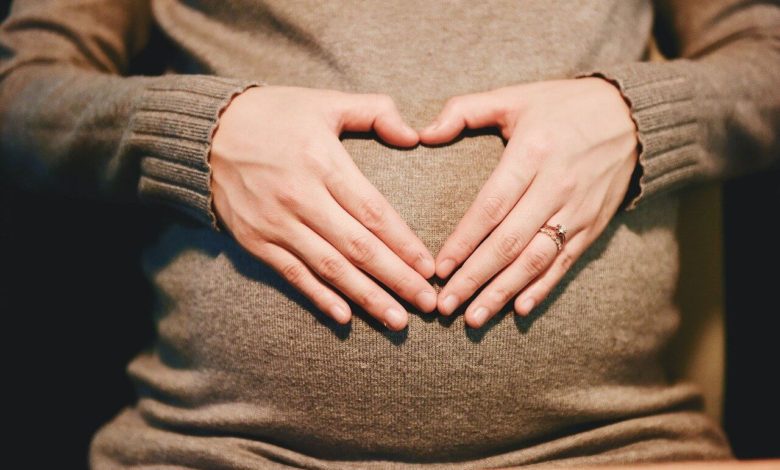What Pregnant Women Should Know About COVID-19?

2019 coronavirus disease (COVID-19) is spreading rapidly all over the world. With the increase in the number of infections, the number of pregnant women and children infected is increasing. It has been observed that pregnant women can experience serious diseases of respiratory infections such as SARS and MERS, due to changes in pregnancy like decreasing in lung capacity and changes in the immune system. Similar results are estimated with COVID-19. In serious COVID-19 cases, if appropriate treatment isn’t administered, fetuses can be effected and it may cause preterm birth before 37 weeks and also cause pneumonia and kidney failure.
Until recently, there was controversy over whether there was a transition from a mother, who was coronavirus positive, to her baby. The small study on 9 pregnant women had showed that there was no such transition. However, in March 2020, an article in a journal of pediatrics revealed that there is a transition of coronavirus from mother to the baby. In this cohort study, all newborn babies born from mothers with COVID-19 at the Wuhan Children’s Hospital was evaluated, in Hubei Province, Wuhan, China. The diagnosis and treatment of newborns with COVID-19 or at risk, were managed in accordance with the guidelines provided by the National Health Commission and the Chinese Perinatal-Neonatal SARS-CoV-2 Committee. The tests were performed using nasopharyngeal (nasal-throat) and anal (from the anus) swab samples. The data were collected from January 2020 to February 2020.
33 newborns were identified, who were born with COVID-19 and including 3 newborns who were COVID-19 positive. The most common symptom in 4 of 33 newborns was dyspnea and death was reported. The detailed information of 3 newborns who were COVID 19 positive as follows:
The first patient was delivered at 40 weeks. Due to COVID-19 pneumonia in the mother, delivery was provided by cesarean section. On the second day after birth, sleepiness and fever were detected during the physical examination and the newborn was transferred to the intensive care unit. Pneumonia was seen on chest radiography, but other laboratory tests were found to be normal. Nasopharyngeal and anal test samples were found positive on the 2nd and 4th days after birth and negative on the 6th day.
The second patient was delivered by cesarean at 40 weeks and 4 days due to COVID-19 pneumonia. Sleepiness, vomiting and fever was detected in the baby. No other feature was detected in the physical examination. Changes were observed in blood tests, pneumonia was found on chest radiography. Nasopharyngeal and anal tests samples were found positive on the 2nd and 4th days after birth, and negative on the 6th day.
The third patient was delivered by cesarean at 31 weeks and 2 days due to COVID-19 pneumonia in the mother and fetal distress in the baby. The revitalization process had to be done. The baby was treated in intensive care unit and pneumonia presented on the 14th day. Since there was suspicion of sepsis in this baby, the test was considered positive on the 2nd and 4th days after birth and negative on the 7th day.
NEWBORNS AT THE COVID-19 RISK SHOULD BE FOLLOWED
3 of 33 babies included in this study were found to have SARS-CoV-2 infection. It is possible that the sources of SARSCoV-2 in the airways or breaches of newborns during birth were maternal. Despite this, 2 other studies showed that there were no clinical finding suggesting COVID-19 in infants, born from mothers who were affected by the disease, and all samples, including amniotic fluid, cord blood and breast milk, were negative for SARS-CoV. However, vertical transition from mother to baby cannot be excluded. For this reason, it is very important to screen pregnant women, to take strict infection control measures, to quarantine infected mothers and to closely monitor newborns at risk of COVID-19.
RECOMMENDATIONS FOR PREGNANT WOMEN
- Described symptoms (such as cough, fever, shortness of breath) should be evaluated quickly.
- You should make sure you have a thermometer at home, you should call the authorities for fever above 38 degrees.
- If you are experiencing shortness of breath, you should consult the authorities and reach the services by providing protection with masks and gloves etc. based on the necessary recommendations. So you can be protected with the right triage and helpful staff.
- Pregnant women who do not have fever, but feel a dry cough should also continue their treatment and care, in accordance with their doctor’s instructions.
- Don’t be afraid, but be cautious. Remember that COVID19 is a mild illness for 80% of the people.





